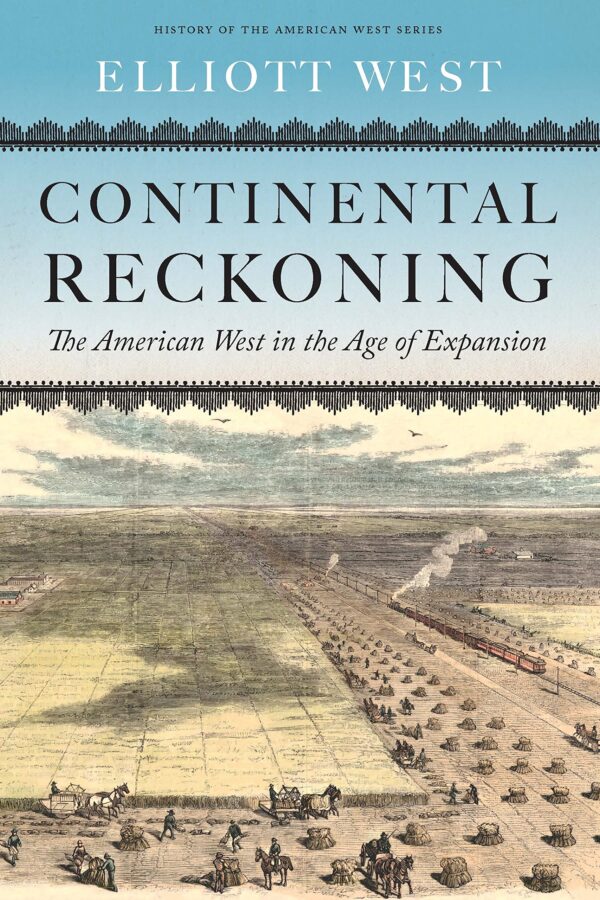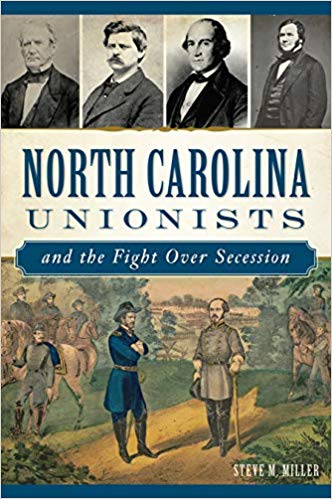Continental Reckoning: The American West in the Age of Expansion by Elliott West. University of Nebraska Press, 2023. Cloth, ISBN: 9781496233585. $39.95.
 How does the birth of the American West relate to the Civil War era? Elliott West’s newest comprehensive history, Continental Reckoning: The American West in the Age of Expansion, attempts to answer that question with vivid detail, playful prose, and exceptional narrative analysis. West has made a successful career expanding our understanding of the Civil War era, developing a concept (“Greater Reconstruction”) that has since been used and expanded upon by scholars of the period. Building on the central tenets of the Greater Reconstruction, Continental Reckoning convincingly demonstrates how the period between the 1840s and the late 1870s remade the nation through the collective experience of the crisis of the Civil War and the forging of the American West as a region. West looks at how these experiences impacted a continental endeavor that made the United States into a modern nation and connected it to world in new and robust ways.
How does the birth of the American West relate to the Civil War era? Elliott West’s newest comprehensive history, Continental Reckoning: The American West in the Age of Expansion, attempts to answer that question with vivid detail, playful prose, and exceptional narrative analysis. West has made a successful career expanding our understanding of the Civil War era, developing a concept (“Greater Reconstruction”) that has since been used and expanded upon by scholars of the period. Building on the central tenets of the Greater Reconstruction, Continental Reckoning convincingly demonstrates how the period between the 1840s and the late 1870s remade the nation through the collective experience of the crisis of the Civil War and the forging of the American West as a region. West looks at how these experiences impacted a continental endeavor that made the United States into a modern nation and connected it to world in new and robust ways.
West contends we cannot fully understand the significance of the mid-nineteenth century without fully delving into the power of westward expansion and how it paralleled the crisis of the Civil War. Arguing that the Civil War and the birth of the American West “should be given something like equal billing,” as “neither one can be understood without the other,” West contends that American state development in both processes forged a modern American state and offered a glimpse of “how we came to be” as a nation and a people (xxx).
To support this claim, West argues two significant points. First, the birth of the American West drastically transformed the United States through state development; newfound political debates; economic endeavors; and social, cultural, and racial conversations. Second, the birth of the American West and the crisis of the Civil War should be seen as inextricably linked, especially in regards to debates about expanding slavery or extending federal power and authority to Western regions. This region drastically shaped governmental debates happening in the East as they became a reality in the West. As an example, West contends that the 1862 Homestead Act and the Pacific Railway Act were both ideas that came before the Civil War, grew to fruition by 1862, and then guided federal authority during the postwar years.
Readers of The Civil War Monitor interested in the traditional topics of Civil War era studies will be hard-pressed to locate those in this book. West’s writing masterfully steers our perspectives away from a history of the Civil War focused only on the East. His centering of the West as a continental conversation demonstrates how the crisis of the Civil War was not only a debate over slavery or states’ rights, but also one over geographic space. Rather than seeing the Civil War as a fracture point in U.S. history, West concludes, it represented “accelerated economic growth, a racial reordering, and redefinition of citizenship, engagement with global revolutions of science and technology, and invigorated with the larger world,” that profoundly signified the power of the West in this national conversation (xx).
West’s book uses a wide array of source material. From letters and newspapers to maps and illustrations, readers see an interesting methodological approach to writing this comprehensive history of the Civil War West. One of West’s most provocative interventions is how he centers Indigenous history into the book’s narrative. He notes how this process drastically impacted Indigenous people and attempts to do an ethical and responsible job reframing classic Western events through Indigenous experiences (xxix). Still, West should have consulted more Indigenous-produced primary and secondary sources that would make this intervention more powerful and ethical. When writing about violence inflicted upon Native nations, he could have implemented Native responses, oral history interviews, or other culturally significant sources to add more analytical depth to the book. In addition, West chose to address specific topics through the historiographical writing of white, non-Native academics. For example, the book’s section on the U.S.-Dakota War relies heavily on this sort of scholarship—spare one edited collection of Dakota perspectives—that could have been better complimented with work by Gwen Westerman, Waziyatawin Angela Wilson, Jameson R. Sweet, or Kate Beane. If the book’s purpose is to center Indigenous history into the making of the American West, using more inclusive source material could have made the book even more powerful.
Elliott West’s Continental Reckoning vividly shows the importance of looking at the American West when studying the Civil War era. West makes sweeping arguments crucial to advancing Civil War West historiography, and his accessible writing style also makes the read enjoyable for the general public interested in the American West or nineteenth-century U.S. history more broadly. Rather than seeing the West as a “safety valve” for the East, Continental Reckoning demonstrates how the region became inextricably linked to the rise of the modern and robust U.S. nation state.
John R. Legg is a Ph.D. Candidate in History at George Mason University and Book Review Editor for H-CivWar. His chapter on “The Oregon Trail” and settler colonialism is forthcoming in an LSU Press anthology on representations of the Civil War in recent video games.

